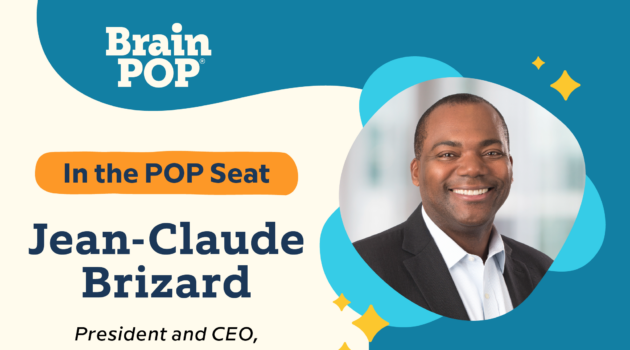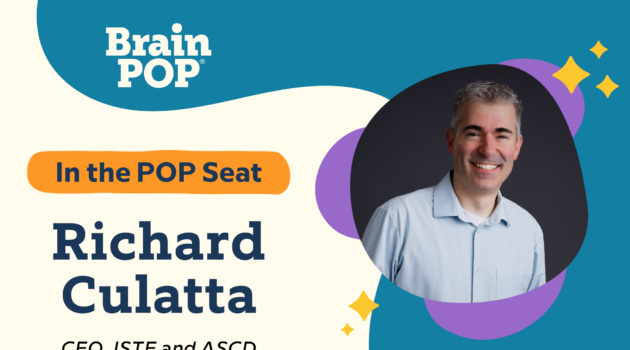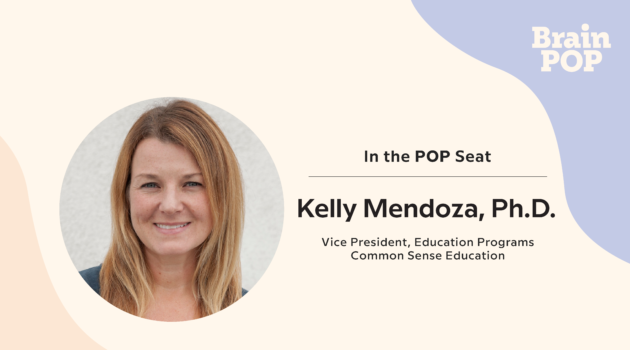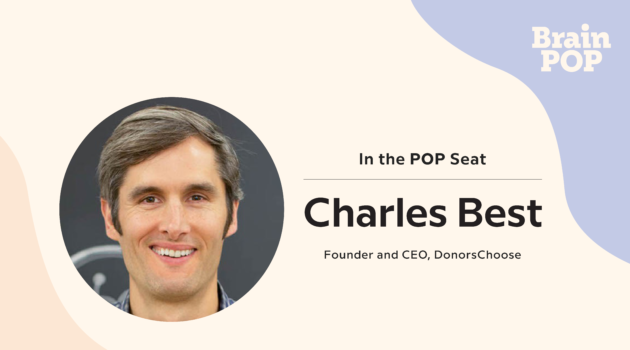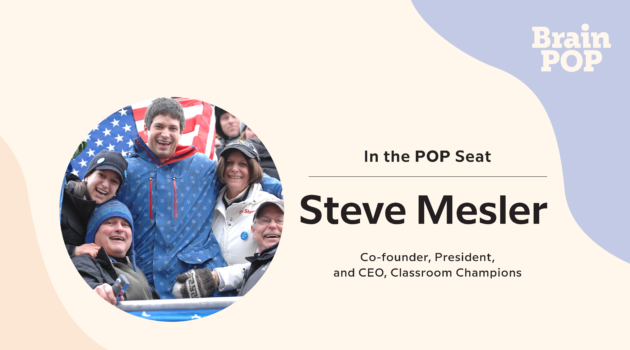In the POP Seat™
In the POP Seat with Code.org Executive Jacqueline Smalls: “I Consider Myself a Teacher at Heart.”
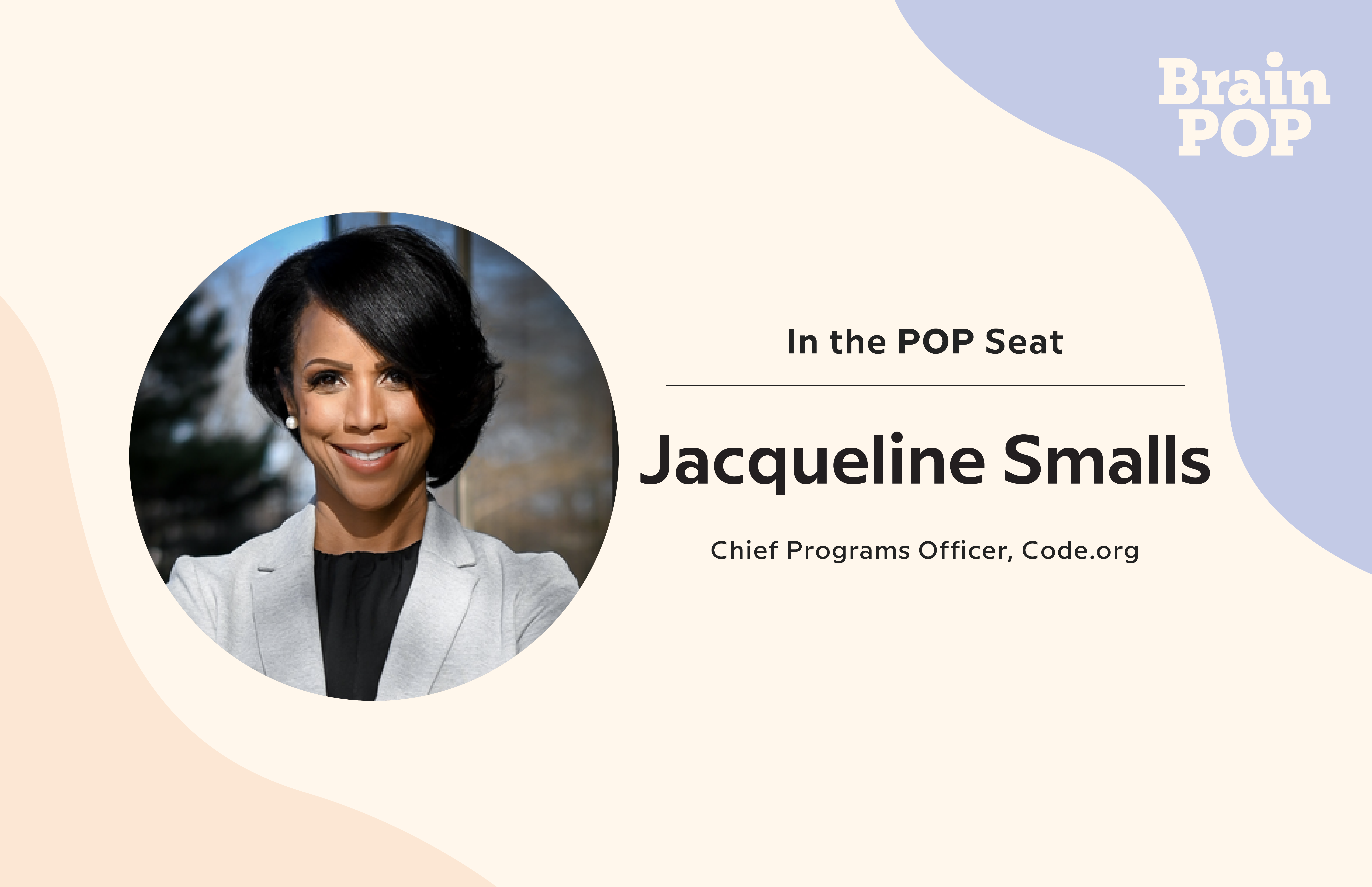
Photo courtesy of Jacqueline Smalls
By: Ilana Kurizki
Jacqueline Smalls can attest to the power of mentorship. Though the former U.S. Army environmental scientist demonstrated passion and proficiency in science subjects as a young student, she didn’t envision herself pursuing a related career until a college professor made the suggestion. That experience stuck with her when she transitioned to teaching elementary school, and it shaped her approach to empowering students. Today, Smalls’ drive to close the gap for young women and underrepresented groups in computer science is at the heart of her work at nonprofit Code.org.
Name: Jacqueline Smalls
Role & organization: Chief Programs Officer, Code.org
Jackie, you are deeply committed to making computer science education more engaging and accessible, and increasing the number of young women and underrepresented groups that pursue STEM careers. How can K–12 education get us closer to realizing that mission?
At Code.org, we believe computer science is foundational for all students. It opens the door to life-changing possibilities and economic opportunities, whether or not students pursue careers in technology.
The Code.org Advocacy Coalition, Computer Science Teachers Association (CSTA), and the Expanding Computing Education Pathways Alliance recently released the 2021 State of Computer Science Education. The report recognizes the tremendous progress made by teachers, school leaders, policymakers, and other advocates, while acknowledging persistent gaps and disparities in access to computer science education. Today, 51% of high schools offer computer science classes, compared to 35% in 2018. That means half of schools don’t offer a single course in the subject. We need policymakers, industry leaders, and advocates to champion policies that make computer science a fundamental part of the education system.
How does Code.org help educators empower students?
When students study computer science, they learn so much more than a new programming language. They build valuable skills like critical thinking, questioning, creativity, and collaboration, which allows them to thrive in a rapidly changing world. Computational thinking is necessary for students and professionals in every field. For example, as students learn to build apps and webpages, or code programs, they’re also learning to recognize and make use of repeating patterns.
Teachers have always aimed to help students develop these skills, and we support them with computer science courses and activities, as well as professional learning opportunities.
That said, these skills should not be learned in isolation. As educators, we need to acknowledge that students come from diverse backgrounds and have unique experiences. Inclusive classrooms recognize the importance of culturally responsive teaching practices. Students need to feel a sense of belonging, and they need to know that their culture and experiences add value to the classroom and community. Learning environments and instructional materials should reflect the diversity we want to see in STEM fields.
You were a contributing writer for the Next Generation Science Standards (NGSS), which have in many ways redefined how science is taught today compared to when you were a student. What informed your approach to these standards?
I was fortunate to contribute to this body of work alongside amazing educators and experienced scientists and engineers. I have to acknowledge that I was motivated by my experience as a teacher grounded in inquiry-based instruction, and as an environmental scientist officer in the U.S. Army.
As a student, I was always curious about the world around me. I majored in biology in college, and had the opportunity to travel the world and apply my scientific knowledge to solve real-world problems related to industrial hygiene, water quality, pest management, and preventive medicine. The NGSS attempts to support the habits of mind of scientists and engineers—the practices through which content knowledge is applied.
How does being a former classroom teacher shape your work today?
I consider myself a teacher at heart. Once a teacher, always a teacher. While my team works to develop professional learning opportunities for teachers and write computer science curriculum for students, I consider how teachers can have the most influence on their students’ educational experience, and what resources and support they need to be effective. Resources have to be of high quality, relevant, and adaptive. Professional learning needs to be turnkey and immediately transferable to instructional practices.
We also have to acknowledge the barriers teachers face, and the unprecedented challenges they tackle every day during the pandemic, which has impacted the education system.
When students study computer science, they learn so much more than a new programming language. They build valuable skills like critical thinking, questioning, creativity, and collaboration, which allows them to thrive in a rapidly changing world.
What advice would you give a student who is excited about science but can’t envision how to translate their passion into a STEM career?
I would advise them to research various STEM careers, ask questions, and seek out a mentor. Once students identify what drives their passion, they need to understand the pathway toward a career, and find individuals with the experience to help them navigate toward it. One of my very first mentors in science education was Dr. Zipporah Miller, the former science supervisor in Prince George’s County Public Schools. I approached Dr. Miller and simply stated, “I’m a new teacher. I have a passion for science, technology, engineering, and math, and I need a mentor.” Her response was, “I will make the time to support you,” and she did. Dr. Miller actually recommended me as a contributing writer for the NGSS! I’m forever grateful to her.
I did the same for a ninth-grade student I met while working as an academic coach in Miami-Dade County Public Schools. She wanted to be a nurse since her freshman year of high school. She had the vision but needed support, encouragement, and guidance to accomplish her goals.
Is there a quote you live by?
“Our deepest fear is not that we are inadequate. Our deepest fear is that we are powerful beyond measure. It is our light, not our darkness, that most frightens us. We ask ourselves, Who am I to be brilliant, gorgeous, talented, fabulous? Actually, who are you not to be? You are a child of God. Your playing small doesn’t serve the world. There’s nothing enlightened about shrinking so that other people won’t feel insecure around you. We are all meant to shine, as children do.” — Marianne Williamson
Jackie Smalls is an advisory panel member for BrainPOP Science, a new middle school solution that enables students to practice real science through guided investigations, while building transferable scientific thinking skills and practices.
Ilana Kurizki is VP, communications and social impact at BrainPOP.


